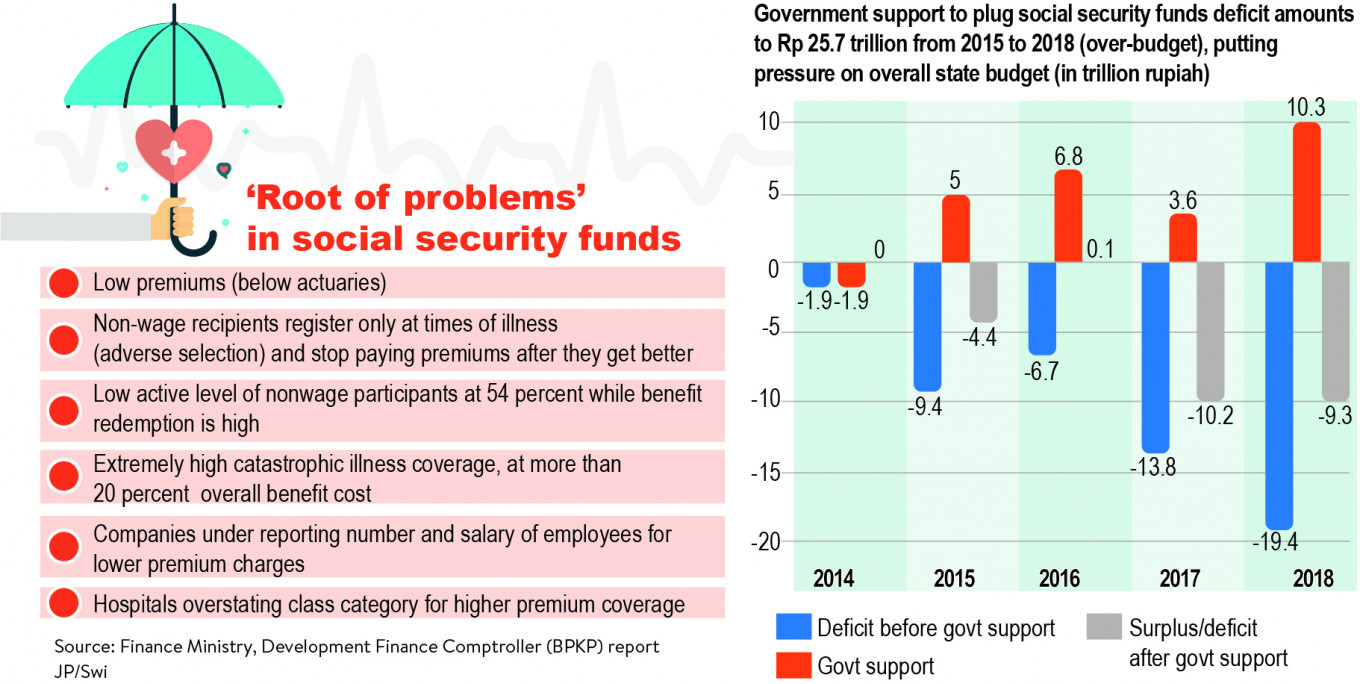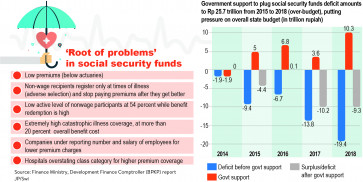Popular Reads
Top Results
Can't find what you're looking for?
View all search resultsPopular Reads
Top Results
Can't find what you're looking for?
View all search resultsCan BPJS Kesehatan survive? An assessment after drastic premium hikes
The government is expecting the hikes to help cover the ballooning deficit recorded by the Health Care and Social Security Agency (BPJS Kesehatan), which manages the JKN. It recorded a deficit of Rp 9.1 trillion in 2018 alone, with an estimated accumulated deficit of Rp 32.84 trillion by 2019.
Change text size
Gift Premium Articles
to Anyone
T
he new year 2020 marks a new phase for Indonesia's universal healthcare program, the National Health Insurance (JKN), as the government is set to double its premiums for the first time since it started operations in 2014.
The government is expecting the hikes to help cover the ballooning deficit recorded by the Health Care and Social Security Agency (BPJS Kesehatan), which manages the JKN. It recorded a deficit of Rp 9.1 trillion in 2018 alone, with an estimated accumulated deficit of Rp 32.84 trillion by 2019.
Cash-strapped, President Joko “Jokowi” Widodo eventually signed in a new Presidential Regulation (Perpres) in October to increase the monthly premiums for all three types of JKN services: first-class service from Rp 80,000 to Rp 160,000 per person, second class from Rp 51,000 to Rp 110,000 and third-class from Rp 25,500 to Rp 42,000. The new premiums, which start taking effect in January 2020, got mixed reactions from the public.
Focusing on promotive, preventive efforts


















